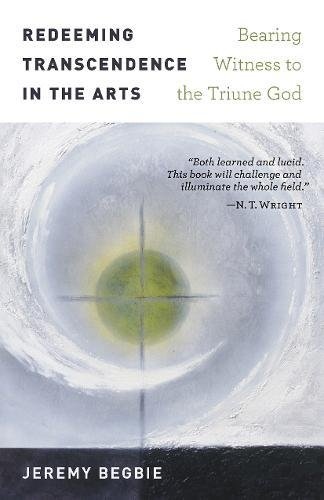Redeeming Transcendence in the Arts by Jeremy Begbie
A scholarly book which focuses on God’s otherness and uncontainability: requires careful attention, but rewards the effort involved
 Redeeming Transcendence in the Arts – bearing witness to the Triune God
Redeeming Transcendence in the Arts – bearing witness to the Triune God
By Jeremy Begbie
SCM
ISBN 9780334056928
Reviewed by John Matthews
Begbie, who has written extensively on theology and the arts, begins by asserting that one of the most striking features of the conversation between the two is pervasive talk of transcendence, and states his purpose as asking: ‘How, if at all, might the arts bear their own kind of witness to divine transcendence?’ (2). In exploring this question he challenges the assumption ‘that focusing on the historically grounded particularities of biblical faith and biblically shaped doctrine inevitably weakens our ability to engage with appeals to transcendence in our culture at large’ (3).
Of course, much hinges on what is meant by ‘transcendence’. Begbie makes it clear that he is not interested in transcendence in any general sense but with that of the Trinitarian God testified to in Scripture and made known supremely in Jesus Christ, and he focuses on two aspects of this: God’s otherness and God’s uncontainability. These are worked out in detail, not least in a chapter (where the arts are not mentioned) in which Begbie seeks ‘to show some of the ways in which Scripture’s unsettling strangeness can form and re-form our understanding of divine transcendence’ (78) by focussing on selected passages in John’s gospel’.
There are some quotable quotes from other writers, like David Brown’s ‘the danger in heeding only the transcendence is that an unbridgeable gap is created between ourselves and God; the danger in accepting imminence alone is that the divine is reduced to something like ourselves’ (21f), and some sentences of Begbie’s own which bear reflection, such as ‘Absence (of speech about God) makes the heart grow not only fonder but also more alert to divine transcendence (17).
This is a scholarly book which is impossible to summarise in a short review. It requires careful attention, and this reviewer had to read some passages more than once, but it rewards the effort involved, with much worth pondering, as well as some material which may be useful for discussion groups and preaching. Although this will require some changes of language - congregations may not immediately grasp what is meant by God’s ‘life of generative outgoingness’ (97) as a way of describing God’s uncontainability!
Unfortunately, there are no illustrations of the works of art discussed, but this would add to the published price of £25. Begbie’s prose is complemented by four sonnets by Malcolm Guite, two written especially for this book, which add substantial value. There are indices of names and subjects, though not one of biblical references, and the numerous footnotes and extensive bibliography which will help readers who wish to explore further.
John Matthews is a retired Baptist minister living in Rushden, Northants
Baptist Times, 14/12/2018